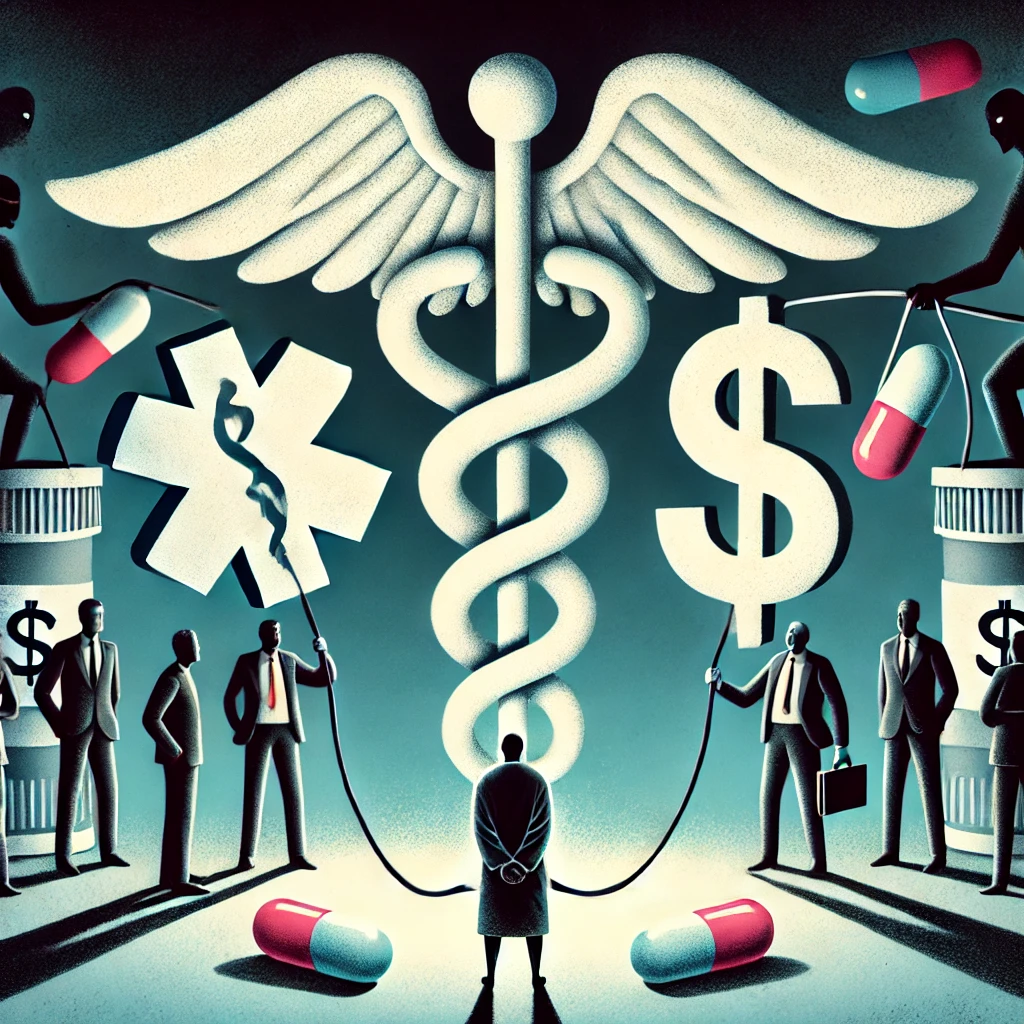Capitalism and health care are fundamentally at odds. In a capitalist system, businesses exist to maximize profit, but when applied to health care, this leads to serious ethical issues. The goal of health care should be to cure illnesses and save lives, yet under capitalism, curing people reduces the need for further treatment, effectively cutting off a revenue stream for companies. This creates a system where ongoing treatment is more profitable than finding a cure—nowhere is this clearer than in the fight against cancer.
Cancer is one of the most devastating diseases in the world. Despite decades of research and billions in funding, there is still no universal cure. Why? One key reason is that the capitalist health care system thrives on managing the disease rather than eradicating it. If cancer were cured, a massive industry that profits from chemotherapy, radiation, and long-term management would lose its primary source of revenue. A patient cured of cancer is no longer a customer, but a patient in treatment ensures ongoing profits.
This is a stark contrast to the approach taken by the top 10 healthiest countries in the world, many of which have nationalized or universal health care systems. Countries like Japan, Singapore, Norway, and Sweden have shown that when profit is not the primary motive, public health can take center stage. These countries focus on prevention, early intervention, and long-term health outcomes rather than profiting from prolonged treatments. The result? They consistently rank among the healthiest nations globally.
In a capitalist health care system, pharmaceutical companies are incentivized to create treatments that patients must take repeatedly rather than one-time cures. A drug that requires continuous doses generates far more revenue than a cure, making it clear why companies often prioritize treatments that manage symptoms. The more chronic conditions patients have, the greater the profits for these companies. Cancer, being one of the most profitable diseases to treat, is a prime example of this dynamic.
The case of viral infections like herpes illustrates this point as well. Around 3.7 billion people globally are infected with HSV-1 (oral herpes), and 491 million suffer from HSV-2 (genital herpes). While antiviral medications can manage outbreaks and reduce symptoms, there is no cure. The pharmaceutical industry profits from the ongoing need for treatment, ensuring a steady stream of revenue from patients who must continue using these drugs for the rest of their lives. If a cure were developed, that revenue would vanish, creating little financial incentive for drug companies to pursue it.
Cancer treatments follow a similar pattern. Many cancers are not cured but managed through treatments like chemotherapy, radiation, and immunotherapy. These treatments are often life-saving, but they also represent a business model built on continuous consumption. Drug manufacturers have little reason to develop a cure that would eliminate the need for these therapies, as it would undermine their long-term profit model. Instead, the focus remains on treatments that ensure patients remain customers for as long as possible.
Even when curative treatments are discovered, capitalism distorts access to them. The case of Hepatitis C illustrates this perfectly. The discovery of direct-acting antiviral drugs in the 2010s offered a true cure for many patients, but the cost of these treatments was exorbitantly high. Sofosbuvir (Sovaldi), one of the most effective treatments, was initially priced at $84,000 for a 12-week course. Although the drug could cure Hepatitis C, its high price restricted access to the cure, once again prioritizing profit over public health.
The same logic applies to cancer. The economic model of the current health care system is not designed to prioritize the discovery of a universal cancer cure. Pharmaceutical companies and health care providers are driven by profit motives, meaning curative research is often underfunded or sidelined in favor of therapies that ensure ongoing revenue. The potential for profit shapes which diseases receive the most attention and which treatments are prioritized.
The healthiest countries in the world have taken a different approach, demonstrating that when profit is removed from the equation, public health can thrive. Japan, Norway, and Sweden, for example, provide universal health care funded through taxes, allowing them to prioritize preventive care, early detection, and effective treatments without the need to drive profits. Their health care systems focus on curing diseases and improving health outcomes for the entire population, not on maximizing revenue from ongoing treatment.
If we are serious about winning the war on cancer, we must adopt a similar model. Nationalized health care systems can realign priorities away from profit and toward public health, where the goal is to eradicate diseases like cancer, not profit from them. When health care is treated as a public good, rather than a commodity, the incentives shift toward cures, prevention, and accessible treatment for all.
Ultimately, to win the war on cancer, we need to eliminate capitalism from the health care sector. As long as the profit motive drives health care, the focus will remain on treating cancer as a chronic condition rather than finding a cure. By adopting a public health approach that emphasizes prevention and cures, we can finally make meaningful progress in the fight against one of the deadliest diseases on the planet. The success of the healthiest countries shows us that this is not only possible but necessary.





